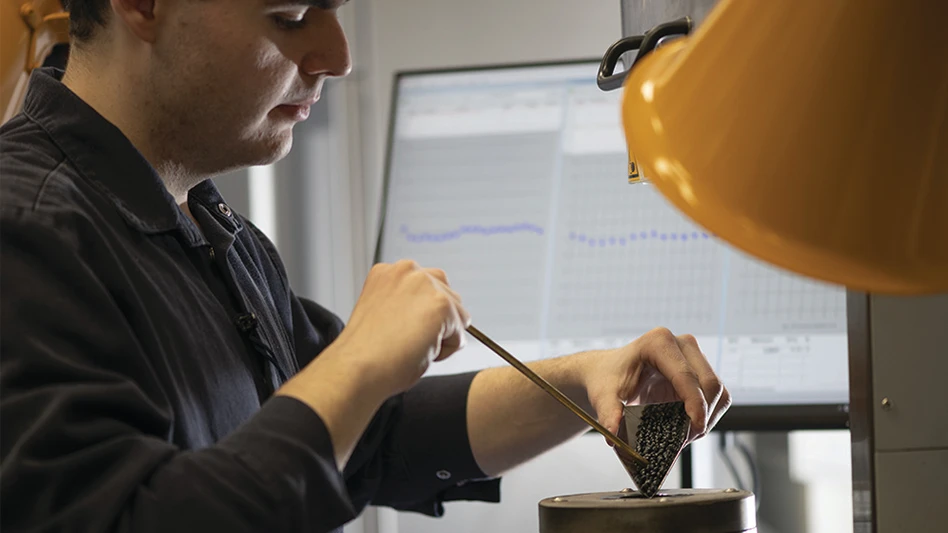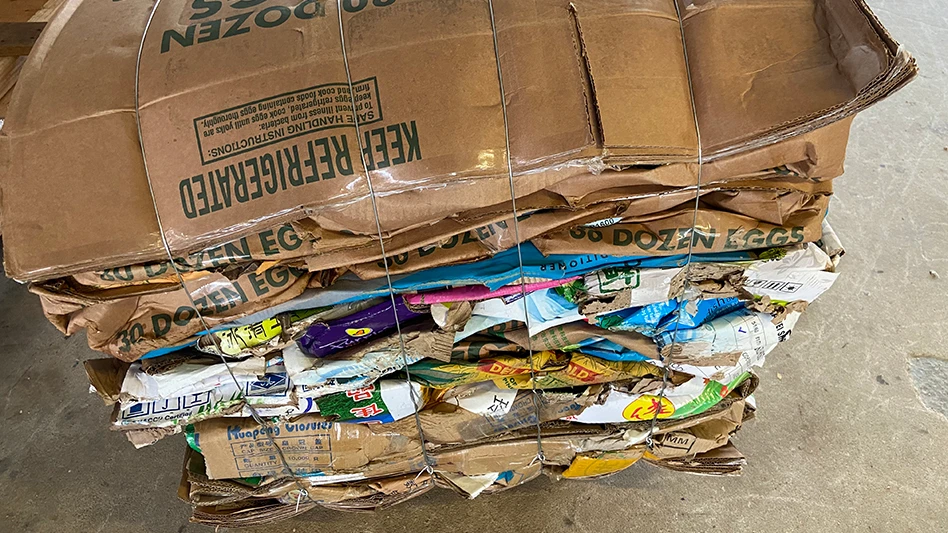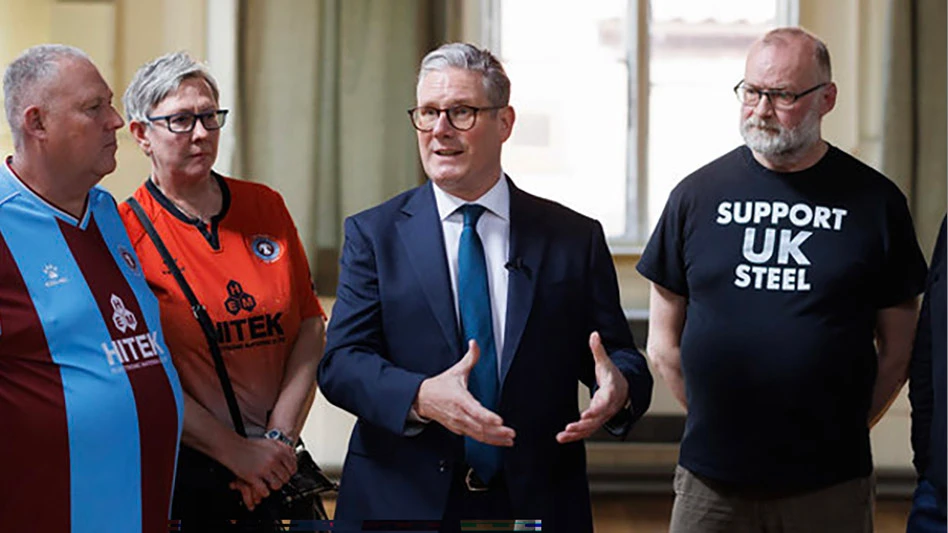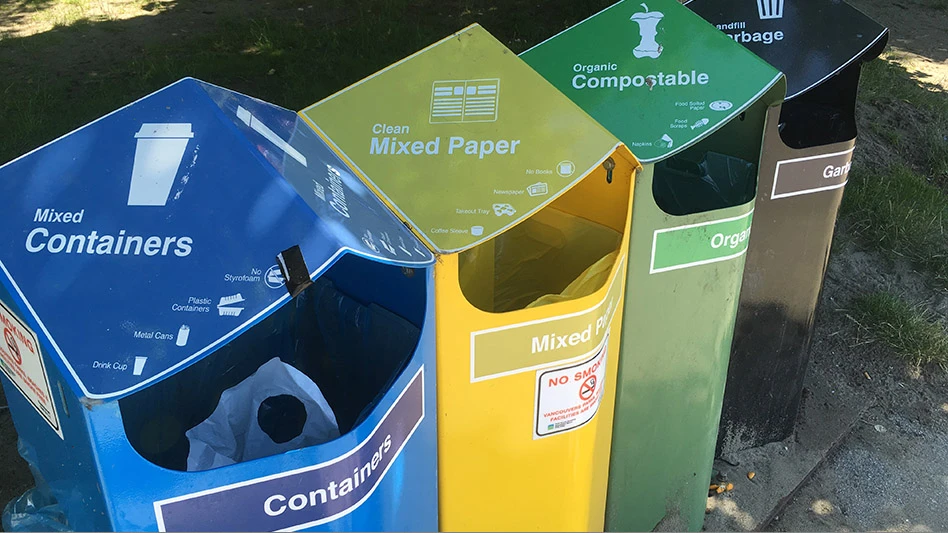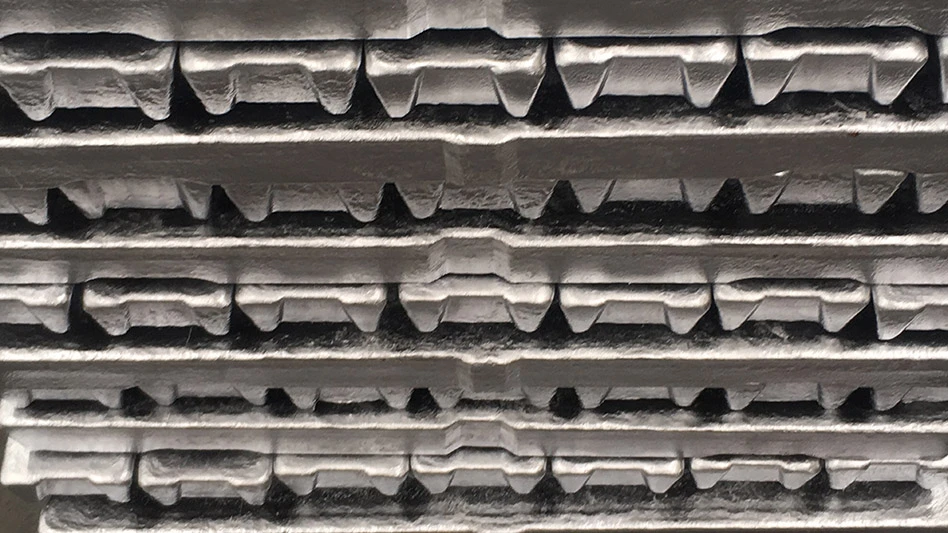
The London Metal Exchange (LME), as it did in 2017, is again considering whether to switch from its current contingent variation model (CVM) for traders taking a hedging position to a realized variation model (RVM), which is widely used in other trading exchanges.
To outsiders, the one-letter change in acronyms could seem an arcane matter for bookkeepers, but two traders who took part in a Bureau of International Recycling (BIR) “The Challenge” broadcast March 11 both stressed to LME CEO Matthew Chamberlain that any such switch is viewed unfavorably by buyers and sellers of material who hedge with the LME.
The CVM, which requires only a monthly settlement of dollars into or out of an account based on a hedged position’s outcome, is considered far less labor-intensive and friendlier toward cash flow considerations than the RVM daily settlement requirements, said the two traders.
“For the most part, I don’t know too many people in the trade, the physical market, who want to deal with RVM and settlements on a daily basis,” stated Mark Sellier, president of Hong Kong-based Global Metals Network. Sellier also urged Chamberlain to consider that the 144-year-old LME was founded as a risk management tool for the metals industry, and that remains a “core mission.”
Murat Bayram, a Hamburg, Germany-based managing director for Europe with United Kingdom-based EMR Ltd., credited Chamberlain for having connected well with recyclers and smelter operators since being appointed LME CEO in 2017. He also echoed Sellier’s concerns, saying with RVM recyclers “would lose the ability to hedge the way we do. I and my colleagues in the industry are quite worried about it.”
Sellier, Bayram and “The Challenge” moderator Michael Lion of Hong Kong-based Everwell Resources Ltd., said the switch to RVM is considered favorable to large financial institutions and fund managers, often looked upon by the metals sector as speculators who wish to treat base metals as an “asset class,” according to Lion.
Chamberlain said he understands why the physical market likes CVM, but the LME “needs to make sure we’re doing the right thing” by considering RVM and “not just doing what we’ve always been doing. The LME board is going to look at that in its entirety. We don’t have a preconceived notion.” He added that people in the risk management community have a favorable view toward the daily settlement or mark-to-market model used by other exchanges.
Bayram also referred to an earlier meeting Chamberlain and other LME executives had with representatives of German metals trade association Verband Deutscher Metallhändler (VDM), who provided similar feedback in February on the potential of a CVM to RVM switch.
A subsequent Reuters report on that meeting said using RVM would require small and medium-sized companies in Germany “to lock up more capital” under the new model and quoted VDM as stating, “The LME ... does not have to simplify its structure to attract business from [large] investors, who we think are well-equipped to handle complexity.”
Chamberlain acknowledged having heard the message loud and clear. While noting the LME is currently the predominant metals trading platform in Europe because it is the only one based there, he quipped, “There isn’t a competing metals exchange in Central Europe, [but] you could argue If we proceed with plans to mark-to-market, maybe there could be.”
The panelists also discussed the status of the two-year-old LME ferrous scrap contract and the emergence of additional recycling and sustainability-related contracts, including one for North American aluminum used beverage cans (UBCs).
Chamberlain said when it comes to factoring in recycled content to some of the low-carbon or sustainable metals contracts, “Recycling is at the heart of the circular economy” and that while “there are details to be worked out,” the LME “wants to support disclosure of recycled content.”
The BIR roundtable participants also discussed the LME’s consideration of ending in-person Ring trading in London, another tradition that spans the long history of the exchange, except for the prior 12 months because of COVID-19. Similar to the settlement model switch, participants fear the change to electronic trading will favor fund managers and institutional investors over physical metal buyers and sellers.
Sellier said trading floor Ring prices reflect “real-world pricing and demand” and getting away from that is a “danger.”
Lion also pointed to a potential for “distortion” by “other players” who see the LME as an “asset platform.” Added Lion, “We saw that in the earlier commodity supercycle [and such investors] are very fickle people,” managing money that can “go away like the morning dew” when the metal commodities “asset class” falls out of favor.
According to Reuters, Germany’s VDM was no less sparing in its criticism of closing the open-outcry Ring trading venue, writing, “The forcing of trades on to the electronic system is questionable, as trading there is heavily influenced by algorithmic and high-frequency trading.”
Get curated news on YOUR industry.
Enter your email to receive our newsletters.
Latest from Recycling Today
- Acerinox names new North American Stainless CEO
- Greenwave closes 2024 books with red ink
- Steel Dynamics nets $217 million on record shipments
- Massive Chinese steelmaking rebound recorded in March
- LME looks into sustainable metal pricing
- OnePlanet Solar Recycling closes $7M seed financing round
- AMCS launches AMCS Platform Spring 2025 update
- Cyclic Materials to build rare earth recycling facility in Mesa, Arizona
